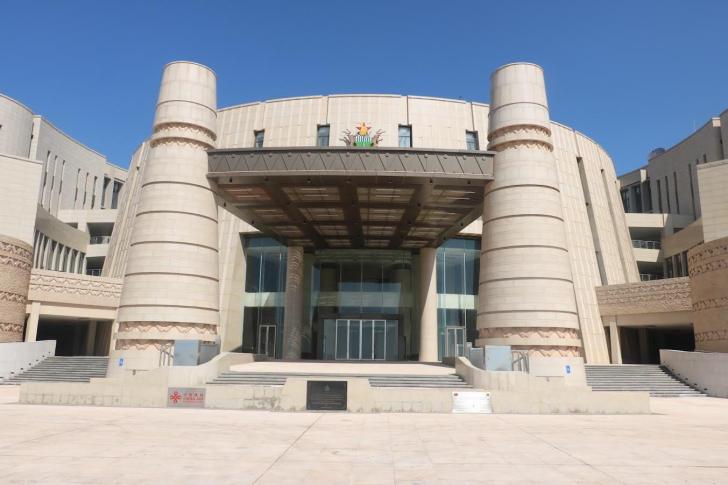News / National
Shonalisation of Zimbabwe Parliament criticised
7 hrs ago | Views

The Zimbabwean Parliament is facing mounting criticism over the way it handles language interpretation during debates, following an incident in which a Member of Parliament's legitimate concern over translation was casually dismissed by colleagues.
The controversy began when a question was asked in Ndebele and immediately translated into English for the benefit of non-Ndebele speakers. However, when a response was given in Shona, no translation was provided for non-Shona speakers, including those who speak Ndebele - raising immediate concerns about fairness and inclusivity.
An MP, whose identity was not disclosed, stood up to express frustration over this discrepancy, questioning why translation was not being offered consistently. Instead of addressing the issue seriously, some MPs reportedly laughed it off and dismissed the concern, igniting public backlash.
Observers have condemned the dismissive attitude displayed in Parliament, pointing out the irony that the very institution tasked with upholding constitutional values such as equality, inclusivity and linguistic diversity is failing to practice them.
"This is the house that makes the laws that govern our country," said one commentator. "If they cannot organise themselves to ensure mutual understanding and basic respect, why should the nation believe they will care about it?"
The criticism has also extended to Speaker of Parliament Jacob Mudenda, who is Ndebele. Many have questioned why the Speaker has not ensured professional conduct in terms of language access and interpretation, especially given the multilingual nature of Zimbabwe's population.
"At times we think it is tribalism when it is just incompetence," said one political analyst. "The Speaker, being Ndebele himself, should be the first to insist on professional standards and proper interpretation so that all MPs, regardless of language, can participate meaningfully."
Language rights are enshrined in the Constitution of Zimbabwe, which recognises 16 official languages. Parliament is therefore expected to facilitate interpretation and translation services for legislators to ensure that all voices are heard and understood, especially in a setting where laws affecting millions are debated and passed.
"It is deeply concerning that such a serious issue is being treated like a joke in Parliament," said a civic society leader. "Every MP has the right to understand what is being said and to be understood when they speak. That's not just respectful - it's fundamental to a functioning democracy."
Calls are now growing for Parliament to implement proper interpretation systems and treat language equality as a governance issue rather than an inconvenience. Some have urged civil society groups and language rights advocates to pressure Parliament for urgent reform.
"This isn't just about Ndebele or Shona," said another MP off the record. "It's about setting a standard that says every Zimbabwean, through their elected representatives, has a right to fully participate - without language being used as a barrier or tool of exclusion."
As Zimbabwe continues to wrestle with its complex cultural and linguistic makeup, the incident serves as a stark reminder that respect for diversity begins in the country's highest institutions.
The controversy began when a question was asked in Ndebele and immediately translated into English for the benefit of non-Ndebele speakers. However, when a response was given in Shona, no translation was provided for non-Shona speakers, including those who speak Ndebele - raising immediate concerns about fairness and inclusivity.
An MP, whose identity was not disclosed, stood up to express frustration over this discrepancy, questioning why translation was not being offered consistently. Instead of addressing the issue seriously, some MPs reportedly laughed it off and dismissed the concern, igniting public backlash.
Is there any language better than the other in this country? #ZimbabweParliament #Zimbabwe pic.twitter.com/k3u9hzJlHI
— BrightoNcube (@Realbeefactor) June 22, 2025
Observers have condemned the dismissive attitude displayed in Parliament, pointing out the irony that the very institution tasked with upholding constitutional values such as equality, inclusivity and linguistic diversity is failing to practice them.
"This is the house that makes the laws that govern our country," said one commentator. "If they cannot organise themselves to ensure mutual understanding and basic respect, why should the nation believe they will care about it?"
The criticism has also extended to Speaker of Parliament Jacob Mudenda, who is Ndebele. Many have questioned why the Speaker has not ensured professional conduct in terms of language access and interpretation, especially given the multilingual nature of Zimbabwe's population.
Language rights are enshrined in the Constitution of Zimbabwe, which recognises 16 official languages. Parliament is therefore expected to facilitate interpretation and translation services for legislators to ensure that all voices are heard and understood, especially in a setting where laws affecting millions are debated and passed.
"It is deeply concerning that such a serious issue is being treated like a joke in Parliament," said a civic society leader. "Every MP has the right to understand what is being said and to be understood when they speak. That's not just respectful - it's fundamental to a functioning democracy."
Calls are now growing for Parliament to implement proper interpretation systems and treat language equality as a governance issue rather than an inconvenience. Some have urged civil society groups and language rights advocates to pressure Parliament for urgent reform.
"This isn't just about Ndebele or Shona," said another MP off the record. "It's about setting a standard that says every Zimbabwean, through their elected representatives, has a right to fully participate - without language being used as a barrier or tool of exclusion."
As Zimbabwe continues to wrestle with its complex cultural and linguistic makeup, the incident serves as a stark reminder that respect for diversity begins in the country's highest institutions.
Source - online































